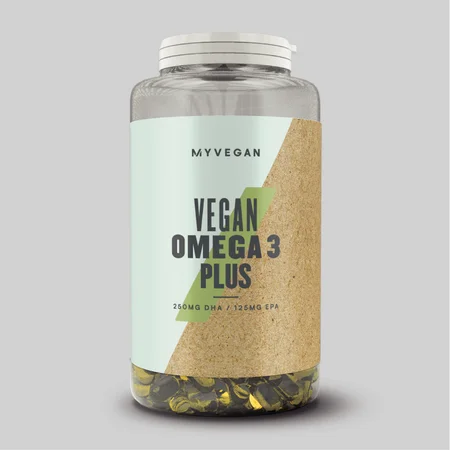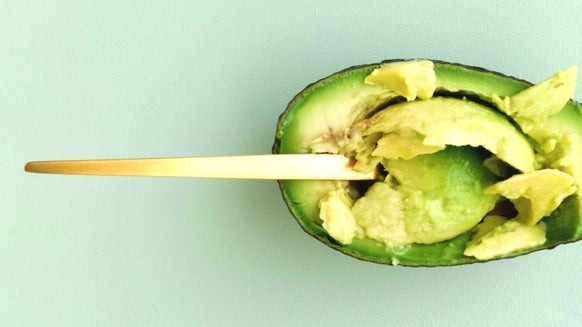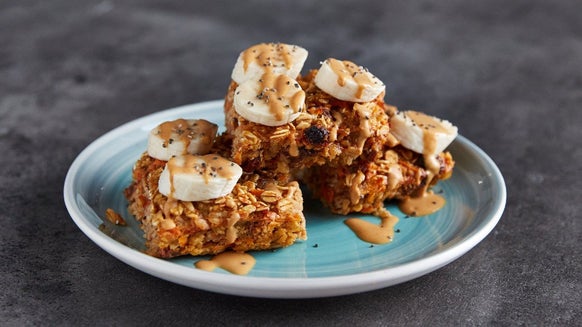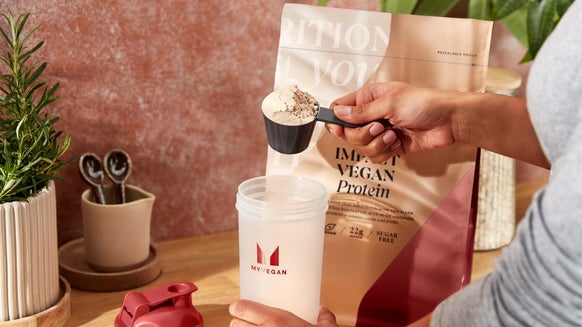How Much Fat Should You Eat Per Day?
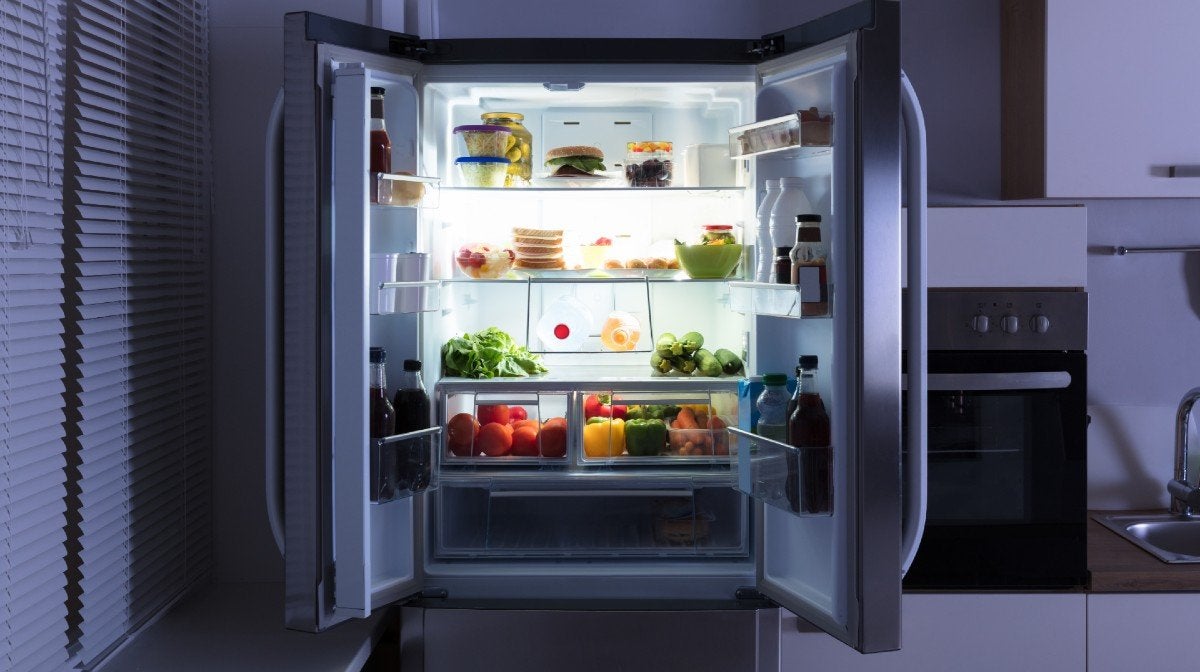
For years, fat was avoided, with low-fat foods being labelled as the epitome of healthy, but now we know that the fat in our diets doesn’t necessarily make us fat.
It actually plays many roles in health and is a key to keeping us feeling satisfied. In fact, it’s a pretty essential macronutrient.
With high-fat diets, such as keto taking centre stage in recent years, you might be wondering how much fat you should
Read on to see how much fat you should eat in a day, and how to choose the best types of fats.

In this article, you'll find:
How many grams of fat you should consume
What is fat?
What are the different types of fat?
Is fat good for you?
Good fats
Bad fats
Benefits of eating fats
High-fat foods
Frequently asked questions
How many grams of fat should you be consuming?
Total Fat: Your total daily fat intake should make up 20-35% of your total calories. This is equivalent to 44-78g of fat for those following a 2000-calorie diet.
Monounsaturated Fat:Monounsaturated fats, the kind that are the most beneficial to your health, should make up 15-20% of your calories, or 33-44 grams of a 2000-calorie diet.
Polyunsaturated Fat: Polyunsaturated fats should be limited to 5-10% of your total calories, or 11-22 grams of a 2000-calorie diet.
Saturated Fat: Saturated fat should contribute no more than 10% of your total calories, or no more than 22g in a 2000-calorie diet.
Trans Fat: Trans fats should be avoided in favour of healthier fats, but are counted toward your total fat intake for the day. Less than 1% of your calories, or 0-1g per day is ideal.
What is fat?
Fat is one of the three macronutrients (along with carbohydrates and protein) that are essential to human health.
It plays many protective roles in the body, and is a source of energy that helps us absorb specific vitamins. However, fat is high in calories it contributes 9 calories per gram versus the 4 calories per gram from carbs and protein.
What are the different types of fats?
There are two major categories of fats, with different subtypes. The major categories reflect differences in the chemical structure of the fats saturated and unsaturated fats.
The saturated fats, although important for our bodies to function, are the ones thought to contribute to negative health outcomes, while unsaturated fats are the types usually considered healthy.
Saturated fats come from mostly animal foods, like beef, eggs, and butter, but also from some plant foods, like coconuts. Unsaturated fats are typically found in mostly plant products like olive oil and avocados. Many foods contain both kinds of fats in different amounts.
Unsaturated fats are further broken down and categorised based on their chemical structure into monounsaturated and polyunsaturated fats. The polyunsaturated fats are the most beneficial for our health, although monounsaturated fats are more common in the western diet.
Trans fats have shown to be linked to negative health outcomes and many health organisations recommend avoiding them all together. Most trans fats are chemically engineered in food processing and don’t occur naturally.
Is fat good for you?
While there are general categories of good fats and bad fats, fat plays key roles in the body and we need a certain amount to function optimally.
However, oils are typically the “good” fats while fats that are solid at room temperature think lard, butter are in the “bad” fat category. All fats and oils are a mixture of saturated and unsaturated fats, but are categorised based on the majority type of fat they contain.
Good fats
The unsaturated fat-based oils are easy to incorporate into a healthy diet while cooking or seasoning foods in small amounts.
Monounsaturated Fats: These fats are important for skin and nervous system health, among other benefits. They help keep our cells healthy and can lower LDL or “bad” cholesterol. You can obtain these heart healthy fats from cooking oils, nuts, seeds, and other foods.
Polyunsaturated Fats: These fats contain a different chemical structure than monounsaturated fats, and also can help lower bad cholesterol in addition to boosting brain health and promoting healthy cell growth.
You might hear the terms “omega-3” or “omega-6” fatty acids, which fall into this category. Beyond the heart health benefits, omega-3 fatty acids have been shown to reduce the inflammatory response, which has greater health implications.
Bad fats
The bad fats in our diets should be limited. Animal products are often high in saturated fat, but can be limited by choosing lean cuts, not eating the skin on poultry, and choosing higher lean percentage ground meats.
Whole milk dairy products are often high in fat, so choosing skimmed or low-fat versions allows you the benefits of the protein and calcium while limiting the saturated fats.
Diets high in saturated fat and trans fat have been linked to health problems. However, they are present in so many foods that it would be almost impossible to avoid them completely, so the recommendation is to limit intake of these types of fats.
Saturated Fat: Our body is able to produce the saturated fats that it needs for structure and function, so for this reason, we don’t need to obtain any from our diet.
These are the fats that are associated with negative health outcomes and have no known role in prevention of any chronic disease.
Although many delicious products are high in saturated fat (ice cream, butter, processed meats), it's best to limit them as much as possible.
Trans Fat: Trans fats are often added to processed foods to make them last longer on the shelves you can find them in snack foods and baked goods to improve texture.
They also keep oils from separating, like in margarine products. Sticking with whole, fresh foods more than those that are packaged can be an easy way to avoid trans fat. Trans fats have been shown to raise the LDL or “bad” cholesterol.
What are the benefits of eating fats?
Fats a crucial part of the diet, not just for the heart health reasons of unsaturated fats, but also for energy and healthy cell function.
When we have a high-fat meal, our digestive system takes longer to digest the food, and makes us feel fuller and more satisfied. Fat makes foods taste good, but it’s high calorie count has to be kept in mind when deciding how much you eat.
Fats are important for your brain health
Fats (particularly polyunsaturated fatty acids like DHA) are critical for brain development and growth, making them crucial for pregnant women and young infants, when the brain is developing rapidly. Higher levels of DHA are associated with improved brain function and vision.
Fats can be an excellent source of energy
When the body doesn’t have access to carbohydrates for energy, it shifts to burning fat for energy instead — which happens during cardio workouts.
Research shows that individuals who exercise regularly can consume a higher fat diet without gaining weight than someone who is sedentary.
The keto diet is popular because it restricts the amount of carbs being eaten, which forces the body to burn fat as fuel instead and often leads to weight loss.
Fighting inflammation
Research has shown that diets high in omega-3 fatty acids can also help reduce the impact of inflammatory disorders on the body.
While more research is still being done in this area, so many chronic illnesses are linked to inflammation, making a promising benefit. The key is to consume healthy fats instead of the less healthy fats while staying within a reasonable limit.
High-fat foods
There are many high-fat foods that are both tasty and satisfying — here’s a list to help you choose the high fat foods that are the healthiest.
The following table lists each type of fat and examples of the foods that are the highest in that type. This is not an all-inclusive list.
| Type of Fat | % of daily calories | Grams in a 2000 calorie diet | Foods with high percentage |
| Monounsaturated | 15-20 | 44-78 | Avocados, olives, almonds, peanuts, sesame seeds |
| Polyunsaturated | 5-10 | 33-44 | Chia seeds, flax seeds, tuna, salmon |
| Saturated | < 10 | < 22 | Butter, ghee, chicken or turkey skin, high fat meats |
| Trans | < 1 | < 1 | Hydrogenated oils, fast foods |
Frequently Asked Questions
Is there a maximum safe limit?
While there is not a safety concern with a high fat diet, most health professionals recommend keeping your total fat intake to no more than 30-35% of your daily calorie intake.
Higher fat diets make sacrifices to carbohydrates and protein, and it can be difficult to get all of the necessary nutrition from high-fat foods alone.
What is a healthy amount of fat per 100g?
Following the 30% or less recommendation, look for foods that have less than 30g of fat per 100g.
How many grams of fat should I consume if I am trying to lose weight?
When you are trying to lose weight, it can help to count your calories or your macros. If you use our handy macro-calculator, it can help you determine both your calorie needs and the optimal macro distribution to meet your goals.
Your daily fat grams for weight loss depend on your current energy needs and your exercise levels.
How many grams of fat do I need if I am trying to gain muscle?
When trying to gain muscle, you will need to consume high-protein foods, most of which naturally contain some fat. As long as your diet contains some heart-healthy fats (olive oil, avocado, nuts, seeds), it should be adequate.
Fat is less important than protein when gaining muscle, but you still need at least 20 percent and might need more to boost your calorie intake.
How many grams of fat do I need if I’m following a keto diet?
To keep your body in ketosis, you’ll need to go much higher than normal on your fat intake — up to 60-70% of your calorie intake, or 133-156 grams in a 2000 calorie diet.
The higher fat intake compensates for a very low intake of carbohydrates while still providing your body with adequate energy. However, if you overeat carbs, your body will shift out of ketosis and the extra fat you’re eating will be stored.
Take home message
Fats play a wide range of essential roles in our body and have various benefits to our health. While fat is not the enemy, it’s important to choose the healthiest types of fats and incorporate a variety of foods into your diet to make the most of this important nutrient.

Claire is a Registered Dietitian through the Academy of Nutrition and Dietetics and a board-certified Health and Wellness Coach through the International Consortium for Health and Wellness Coaching. She has a Bachelor of Science in Biology and a Master’s degree in Clinical Dietetics and Nutrition from the University of Pittsburgh.
Talking and writing about food and fitness is at the heart of Claire’s ethos as she loves to use her experience to help others meet their health and wellness goals.
Claire is also a certified indoor cycling instructor and loves the mental and physical boost she gets from regular runs and yoga classes. When she’s not keeping fit herself, she’s cheering on her hometown’s sports teams in Pittsburgh, or cooking for her family in the kitchen.
Find out more about Claire’s experience here.
